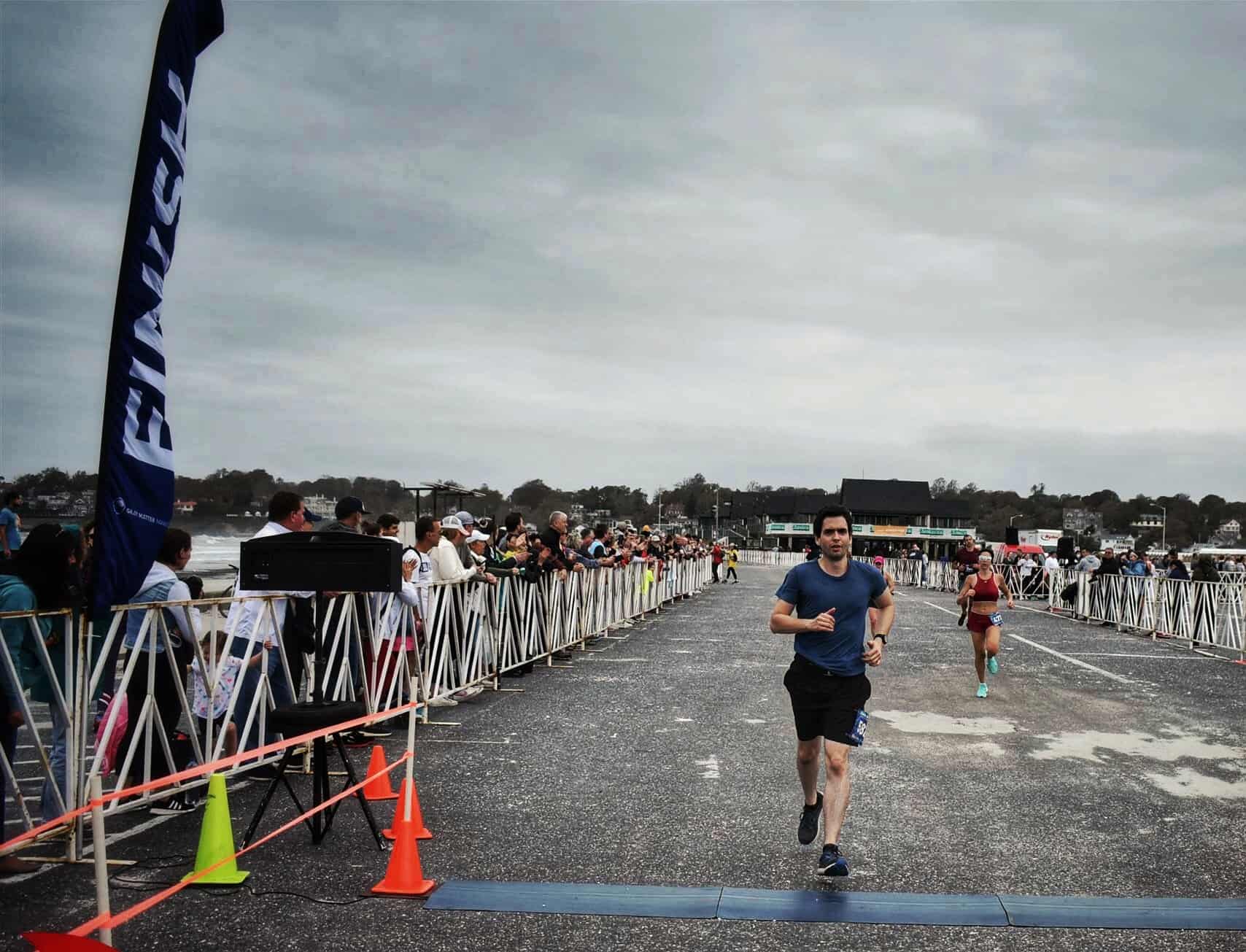On April 9th, 2019, I stopped drinking alcohol. It had become more than a social pastime and was affecting my sleep, mood, work and relationships. It became clear to me in prayer that alcohol was hindering my life. Soon after I stopped drinking, I realized I needed a new activity to distract me, release some energy, and fill in the time that I would have spent otherwise. I decided to pick up running. My first runs consisted mostly of laps around the Jesuit property, a half-mile to a mile-and-a-half before I ran out of breath or my legs started to hurt. My mind during those first few alcohol-free months was restless. Despite the short distances, running allowed me to observe my thoughts and detach from them. Though I didn’t always feel physically great after those initial runs, at least I felt more serene.
About three months after I picked up running, I moved to Boston to begin my theology studies. During my first year, I occasionally went on three- to four-mile runs with a Haitian Jesuit friend of mine. Once the pandemic started, I began to increase my intensity, running five times a week at greater distances. When I finally hit ten miles with another Jesuit friend, it felt like an accomplishment. In June, a member of my theology community invited me to run the Newport Marathon. His invitation reminded me of why I started running in the first place: a desire for mental clarity. I’ve learned that challenges can be a great way to know oneself. I signed up.
The marathon training taught me a lot about myself. It revealed to me my own resistances, mental blockages, and relationship with pain and discomfort. Training for a marathon required running five to six times a week whether I was in the mood or not. This discipline strengthened my mind not to rely so much on what I was feeling at any particular moment. It also taught me the importance of combating negative thinking. I had to transform negative thoughts, such as “I can’t do this,” into positive ones. I would focus on other emotions, such as gratitude: I felt gratitude for the beauty of God’s creation, gratitude for the places God has taken me to, gratitude for the community of Jesuit runners that I’ve been able to meet, gratitude for the sobriety that has allowed me to do any of this. Entering this meditative state helped me to learn to become comfortable with discomfort.
This does not mean that everything went smoothly and easily. The first time I ran 20 miles, it was a very hot day and I paused many times along the way. By the end of it, I felt depleted and wanted to cry. The longer I went, the more I confronted my own limits. The only way for me to continue increasing the mileage was by paying attention to my body. I had to be mindful about stretching, getting the proper rest and sleep, and knowing when to slow down.
I ran the Newport Marathon on October 10th. It was a hilly route along the seashore. I made the rookie’s mistake of starting out too fast. I finished the easier first half in an hour and forty-five minutes, an 8:00 min/mile pace. The second half was much harder and almost entirely uphill. I felt relatively fine until I hit mile 20. That’s when I realized that I was soon about to enter uncharted territory in terms of distance. As is standard, I hadn’t run the full 26.2 miles during the training; the most I had run was 22 miles. This new distance brought tears to my eyes. I felt overwhelmed by a profound feeling of gratitude for the sober journey that brought me here and God’s presence along the way.
This gratitude gave me a second wind that propelled me until mile 23. There my body hit a wall. My lower back locked up and every single part of me began to hurt. My tears were no longer of joy but of pain. To get through that last 5K, I mentally went back to my first month of sobriety. That first month was full of discomfort and anxiety. My mind was full of insecurities, fears and resentments. Yet, eventually, that went away and with the help of other sober people I was able to find a greater joy and serenity. Reliving that moment put my current running pain into perspective. My mantra for those last three miles became: “this too shall pass.” Still, I realized I had to keep running below an 11:00 min/mile pace if I wanted to achieve my time goal. So I kept moving thinking “this too shall pass… this too shall pass…”
I crossed the finish line in 3 hours and 56 minutes, four minutes below my goal. As soon as I picked up my medal I collapsed. It took me 10 minutes to stand back up and find the other Jesuits that had run the race. My legs hurt in various degrees all the rest of that week. Yet, I’m grateful for this experience and for the people who helped me accomplish it. I’m grateful for how sobriety allows me to run and for the friendships I’ve been able to make with other runners. Running helps me to feel connected to others, to my own body, to nature and to God. Had I kept drinking, I don’t know if I would ever have dared to embark on this running adventure. Today, I view my sobriety as a gift from God that sets me free – free to run, free to hope.


